Congratulations to Cat Odell, Deborah Pearson, Carey Sookocheff, Sigal Samuel and Rachel Wada for being selected by the CCBC Choices 2022 List! CCBC Choices is a best-of-the-year list created annually by the librarians of the Cooperative Children’s Book Center.
Osnat and Her Dove: The True Story of the World’s First Female Rabbi by Sigal Samuel (Levine Querido)
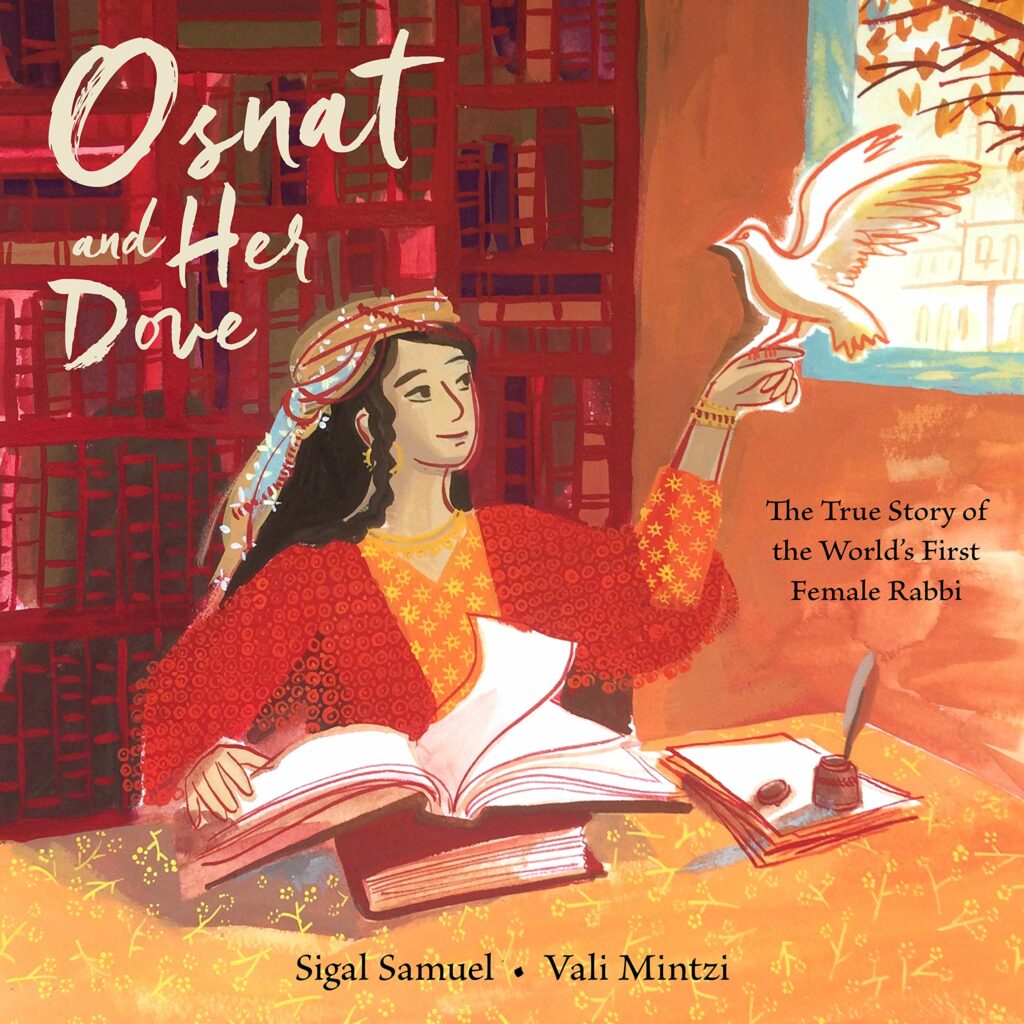
As a child, Osnat Barzani persuaded her rabbi father to teach her to read Hebrew and study Torah. A Kurdish Jew born in 1590 in Mosul, Iraq, Osnat’s scholarly skills and interests were unusual for a girl of her time. As an adult, she married a man named Jacob on the condition that he excuse her from chores so that she might continue her Torah study. After her father’s death, Osnat became a teacher at his yeshiva, and when Jacob died years later, she filled Jacob’s position. A respected and beloved teacher, Osnat was also considered a miracle worker. When her pet dove was struck by a hunter’s arrow, she healed it. In another astonishing event, she seemed to call upon angels to preserve the Torah scrolls inside a synagogue that had been engulfed in flames. Richly colored gouache illustrations fittingly walk a fine line between realistic and fantastical in this fascinating story about a groundbreaking historical woman whose deeds are remembered mostly in legends.
Sigal is represented by Samantha Haywood.
My Words Flew Away Like Bird by Deborah Pearson (Kids Can Press)
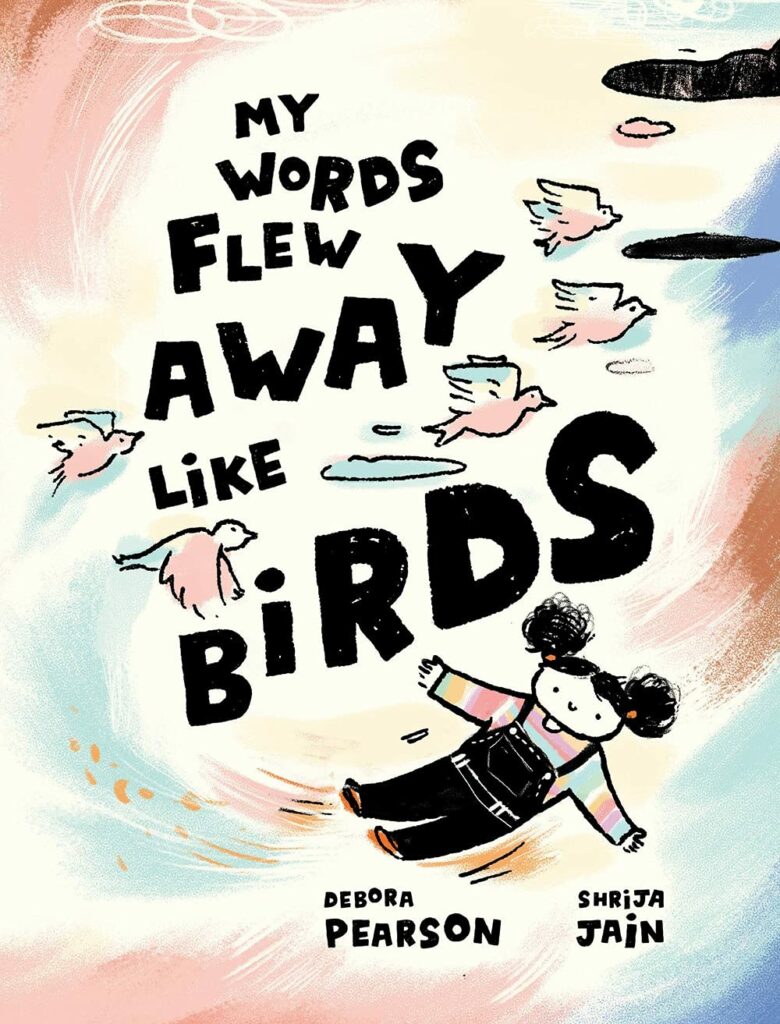
“Before we moved away, my mother taught me some words in a new language. She said we would need these words …. But when we came here, my mother, my father and me, all my worlds flew away like birds.” A young immigrant child from an unnamed place describes the before and after of her life—the details of her old home and of relationships with people lost since coming to a new country, as well as the confusion of words that she faces in her new home. “Everyone spoke so fast, their words tumbled and swirl.” She watches, waits, observes, even sees things that she recognizes (trees, sky, park) but they aren’t the same as home. But time brings a new friend, and eventually, slowly, she gets more comfortable speaking and understanding the new language, new words that “are here to stay.” This look at an immigrant experience featuring a younger child deftly captures both feelings and concrete experiences, such as a helpful janitor assuming another immigrant is from the same country, leading to an awkward exchange. Jaunty pen-and-ink illustrations with digital color show the characters as light/white-skinned. Creative use of font size emphasizes the importance of words, sounds, understanding, or not understanding, adding to the ultimately optimistic story’s impact.
Deborah is represented by Amy Tompkins.
Lost Things by Carey Sookocheff (Kids Can Press)
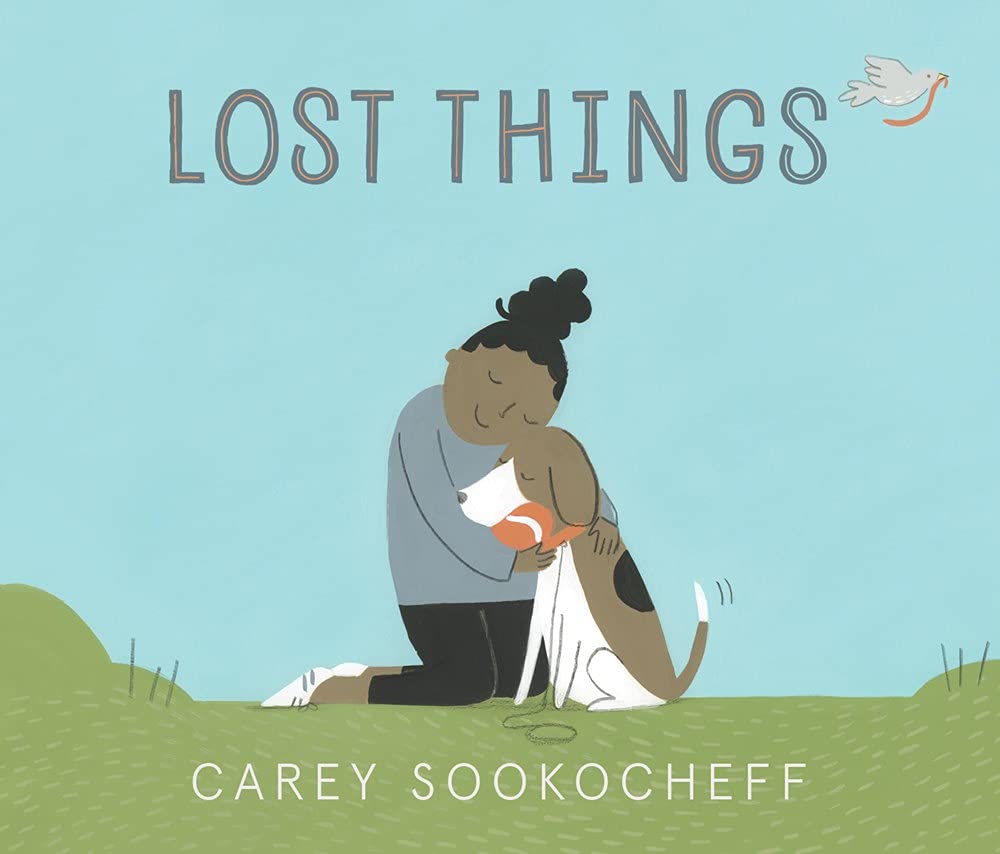
A Black girl walking her dog through the park doesn’t notice her hair ribbon drop from her box braid bun as her dog suddenly chases after a squirrel. The ribbon is quickly picked up by a bird who takes it to her nest. A white toddler watching the bird doesn’t notice that he’s dropped his teddy bear, but a white woman riding by on her bike sees it and takes it to a nearby café, where it waits to be found. Similar scenarios follow: a pencil (not missed at all) drops from the biker’s book bag, and a red ball falls from a brown-skinned girl’s wagon as her mother pulls her through the park. The red ball is found by the girl who started it all and has been looking for her dog since the dog went after the squirrel; she finds him soon after she picks up the ball. Astute readers will notice the missing dog in the background of many of the pictures. Spare text accompanies acrylic gouache and pencil illustrations, guiding the eye to objects lost and found, and a lovely visual resolution shows the squirrel finding an acorn that’s just dropped from a tree.
Carey is represented by Fiona Kenshole.
Penguin Journey by Angela Burke Kunkel and illustrated by Cat Odell (Abrams Appleseed)
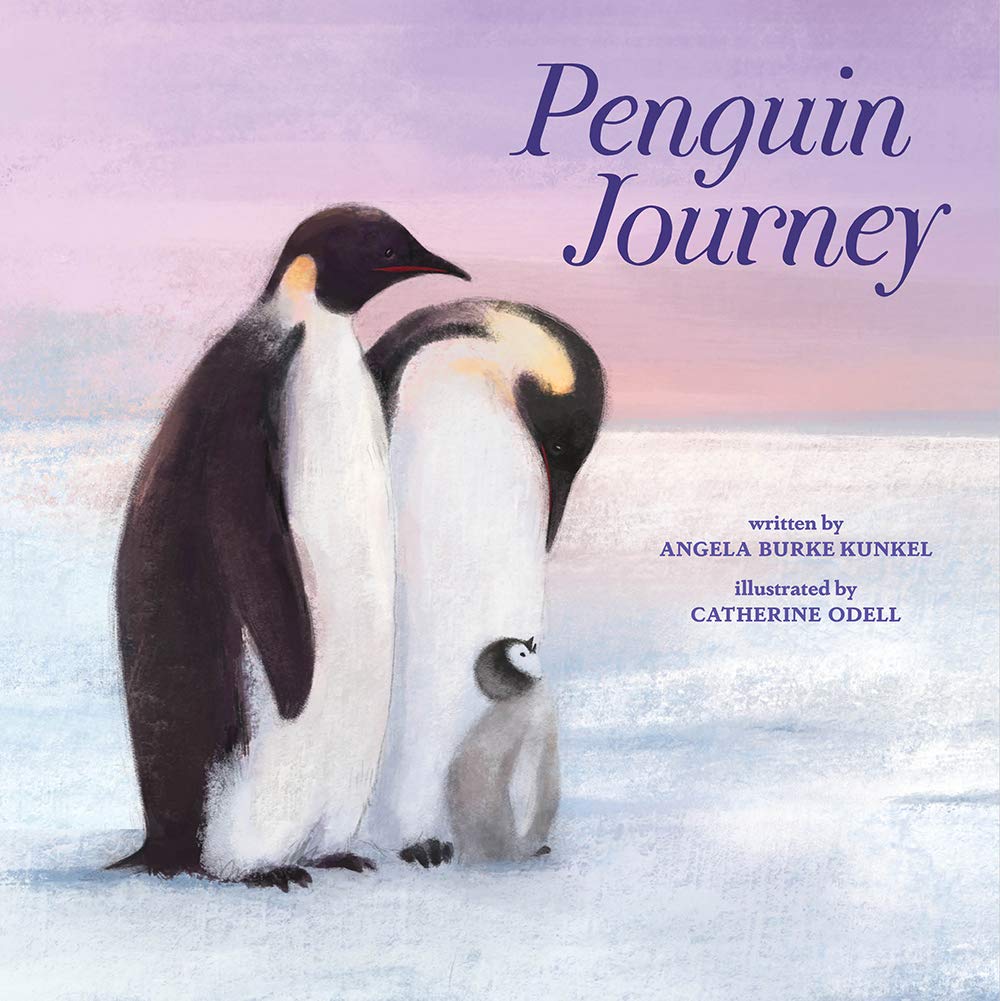
“Packed Snow. Moon glow. Windblown. All Alone. / Empty view. Now two!” Short rhymed couplets describe the lives of a pair of emperor penguins as they move inland with their colony to their rookery, where they will lay an egg. As the father cares for the egg in the Antarctic winter, the mother heads back to open water to feed. When she returns with nourishment for her baby, she meets her newly hatched chick for the first time, and the family of three sticks together “no matter the weather.” The stunning watercolor, ink, and mixed-digital-media illustrations realistically portray the penguins in their harsh natural environment.
Cat is represented by Fiona Kenshole.
From the Tops of the Trees by Kao Kalia Yang and illustrated by Rachel Wada (Carolrhoda Books)
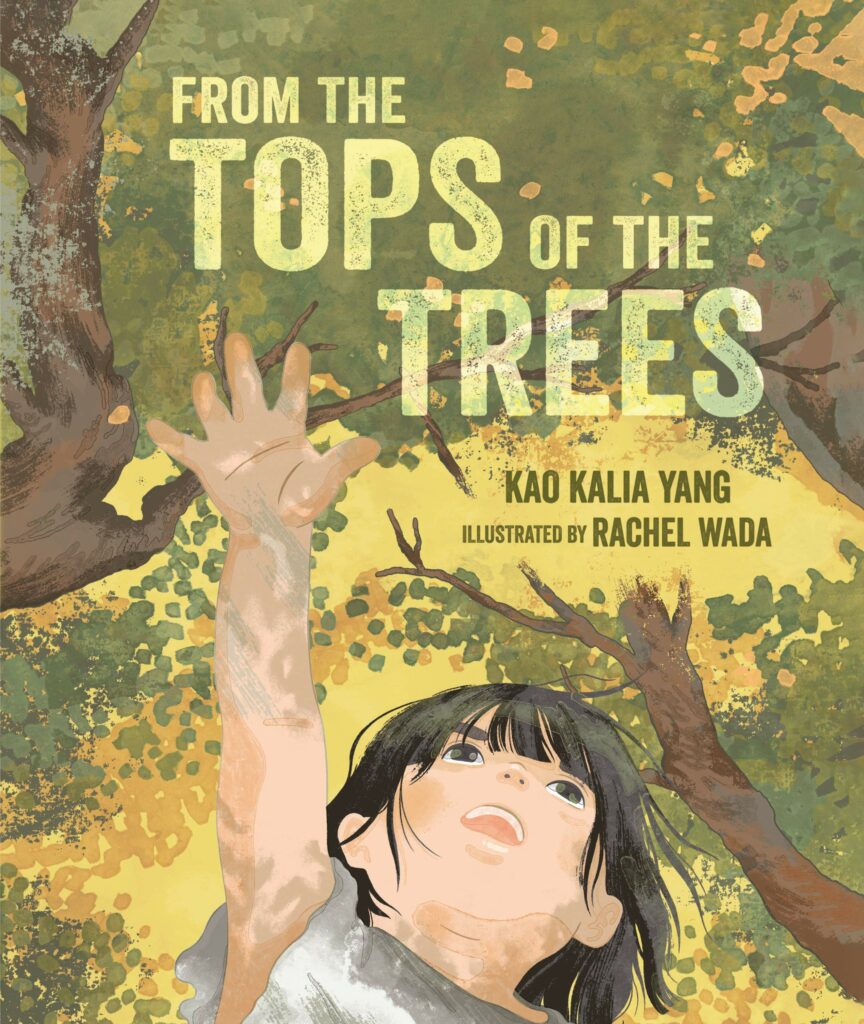
Based on her own experience, Hmong American author Yang describes living in the Ban Vinai Refugee Camp in Thailand as a small child in the mid-1980s. After describing a bit of the everyday life inthe camp, she zeroes in on one particular memory: Her mother dressed her in her best clothes, whileher father carried young Kaoon his back as he climbed a tree so that she could see that the world is bigger than the refugee camp. At the top of the tree he tells her, “One day my little girl will journey far into the world, to the places her father has never been.” An author’s noteoffers more details about her life in the camp before her family moved to the United States when she was six years old, and the end matter also includes the photograph her mother took of the author in the tree with her father. The anime-style illustrations in muted tones express the love between the young girl and her parents.
Rachel is represented by Amy Tompkins.
See the full list of nominees here: https://ccbc.education.wisc.edu/literature-resources/ccbc-choices/
Share:
